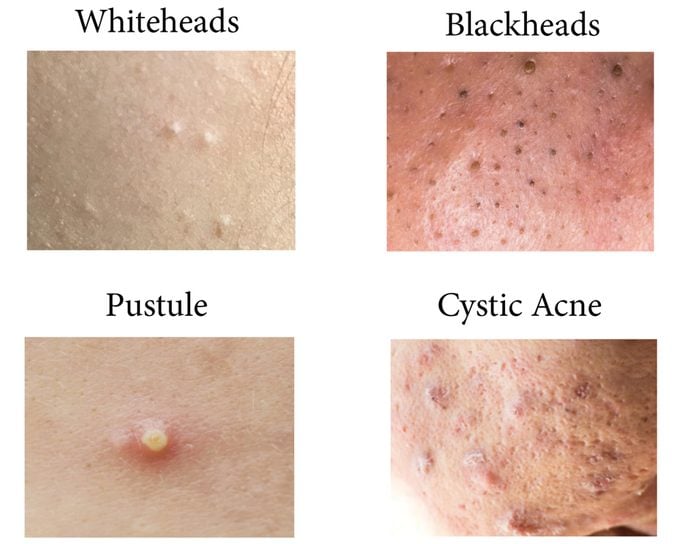Dr. Pimple Popper Reveals the Type of Acne You Should Never Pop
Updated: Mar. 28, 2022
We chatted with the pimple guru herself on the type of acne that should only be popped by a professional.

Most dermatologists will tell you never to pop a pimple of any kind on your face, or any other body part for that matter. While famed MD, Sandra Lee—”Dr. Pimple Popper” herself—mostly agrees, she notes that out of all the types of pimples you can have, there’s one that tops the “do not pop” list: cystic acne.
“This is the most severe form of acne, in which the inflammation is situated more deeply under the skin,” she tells Reader’s Digest; it also tends to be the most painful type of acne. And unlike other types of acne—whiteheads and blackheads, for example—you won’t be able to successfully squeeze cystic acne: Pushing on the area will only make the area look and feel worse and create an even bigger pimple. Find out the 8 surefire ways to get rid of acne once and for all.
Cystic acne, like acne in general, has two main causative factors: hormones and genetics. “This is why acne is usually worse during our pubertal teenage years, when our hormones are raging, and why many adult women experience breakouts during menstruation,” explains Dr. Lee. Genetics play a big role, as well: “If you have inherited more oily (sebaceous) skin from your parents and they had bad breakouts, you will be more likely to have the same issues,” she adds. “Some people have oily, thickened skin that’s more predisposed to acne and usually those people with parents that had cystic acne will have it themselves.” Certain medications, too, can cause acne such as anabolic steroids. Check out these 13 surprising home remedies for acne.
If you have a red, cystic pimple that hurts to touch, and is deep under the skin, try your best to leave it alone—do not try to pop or squeeze in any way—you’ll raise your risk of infection and permanent scarring. Instead, Dr. Lee suggests seeing a dermatologist who can prescribe medications that are formulated specifically to treat this type of acne. “Dermatologists can also locally inject corticosteroids into your cystic acne, and this can help resolve some individual lesions within 24 hours,” she says.
To prevent cystic acne from cropping up in the first place, she recommends following a complete skincare regimen day and night. Choose quality products to help keep your pores clear and free of acne-causing bacteria—all of which can all lead to less severe or fewer breakouts in general, says Dr. Lee. “I created my Acne System to be a very simple and easy to use (three steps, morning and night) so that people can actually stick to it and stay consistent with it.” Watch for these sneaky reasons you’re having an acne breakout.
